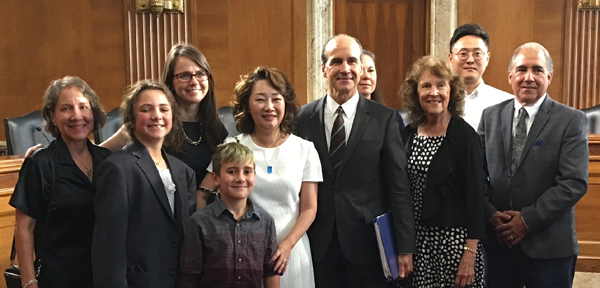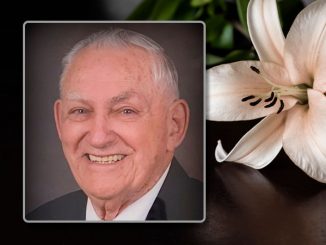
Mark Menezes, a former Luling resident and graduate of Hahnville High School, will be confirmed in December as undersecretary of the U.S. Department of Energy in Washington, D.C.
“I’m excited as I can be,” Menezes said. “It’s a fantastic opportunity. I would never have thought someone from Luling would have the honor of representing the nation in such a capacity. I’m both thrilled and humbled.”
Menezes is the son of the late Robert C. Menezes Sr., who was coach and later principal of Hahnville High for 20 years until his death from cancer in 1975. His mother lives in Luling, as well as many family members including his sister.
“It wasn’t anything I sought,” he said of being named for the position. “There were people advising the President [Trump] about getting an energy team in place and I was just fortunate enough to have people who made the recognition. It was quite an honor to just make it through the process.”
Named to the position without objection, Menezes was vice president of federal relations with Berkshire Hathaway Energy.
As No. 3 in the Energy Department, his duties will include national energy policy, resource management and regulation, as well as oversight of the nation’s 17 national laboratories and nuclear weapons program.
He brings to the position 25 years of experience working in the nation’s energy sector.
Before joining Berkshire, Menezes was a partner at Hunton & Williams heading its energy practice group.
Prior to Hunton, he was chief counsel, U.S. House Committee on Energy and Commerce, for the House Majority during the enactment of the Energy Policy Act of 2005.
Prior, Menezes was vice president with Central and South West Corp. and upon its merger with American Electric Power Co., he served as vice president and associate general counsel.
Menezes is a graduate of Louisiana State University receiving both his undergraduate and juris doctor degrees. He is a charter member of the Advisory Council for LSU Energy Law Center, as well as served as chief counsel to former U.S. Sen. Billy Tauzin.
“A person does not get into this place in life without the support of his family and many friends and colleagues along the way,” he said. “So it’s been an effort of many and I owe it to many people who have helped me and given me opportunities along the way.”
Even as he worked at Haliburton to pay for his education, Menezes said he learned about the energy business.
“Going into energy seemed a natural thing to do,” he said. “With this president, we can drive energy for economic prosperity so it’s an exciting time to be in this position.”
Menezes starting as undersecretary was advanced by Trump shortly before his 13-day tour of Asia because he was eager to get him started on restoring electric power to Puerto Rico.
Fifty percent of customers have power again, but he said he’s also been challenged with making the electric grid more resilient to storms like Hurricane Maria that left most of the territory in the dark with still at least two more months of work ahead.
Overall, Menezes said efforts are moving ahead on their mission to “re-energize” the Energy Department.
“Things are beginning to have a feeling where we’re moving it all in the right direction,” he said.
In Washington, he’s also been charged with increasing economic prosperity in energy, exploiting technology like hydraulic fracturing to maximize profits. Menezes said their efforts also are aimed at helping other countries shift their dependency from Russian or Iranian energy to U.S. energy.
Menezes said they also anticipate a worldwide demand for nuclear power, which translates into the need for what he called a robust energy portfolio with diverse sources that are environmentally sound but also supporting economic security.
“It may not be as evident in the U.S., but it is evident globally,” he said. “We need to make sure we have vibrant nuclear plants like Waterford III and River Bend so we can attract nuclear expertise and continue to design, along with our labs, future nuclear technologies that the rest of the world will want. We can export that technology to countries that want to be more self-reliant.”




Be the first to comment